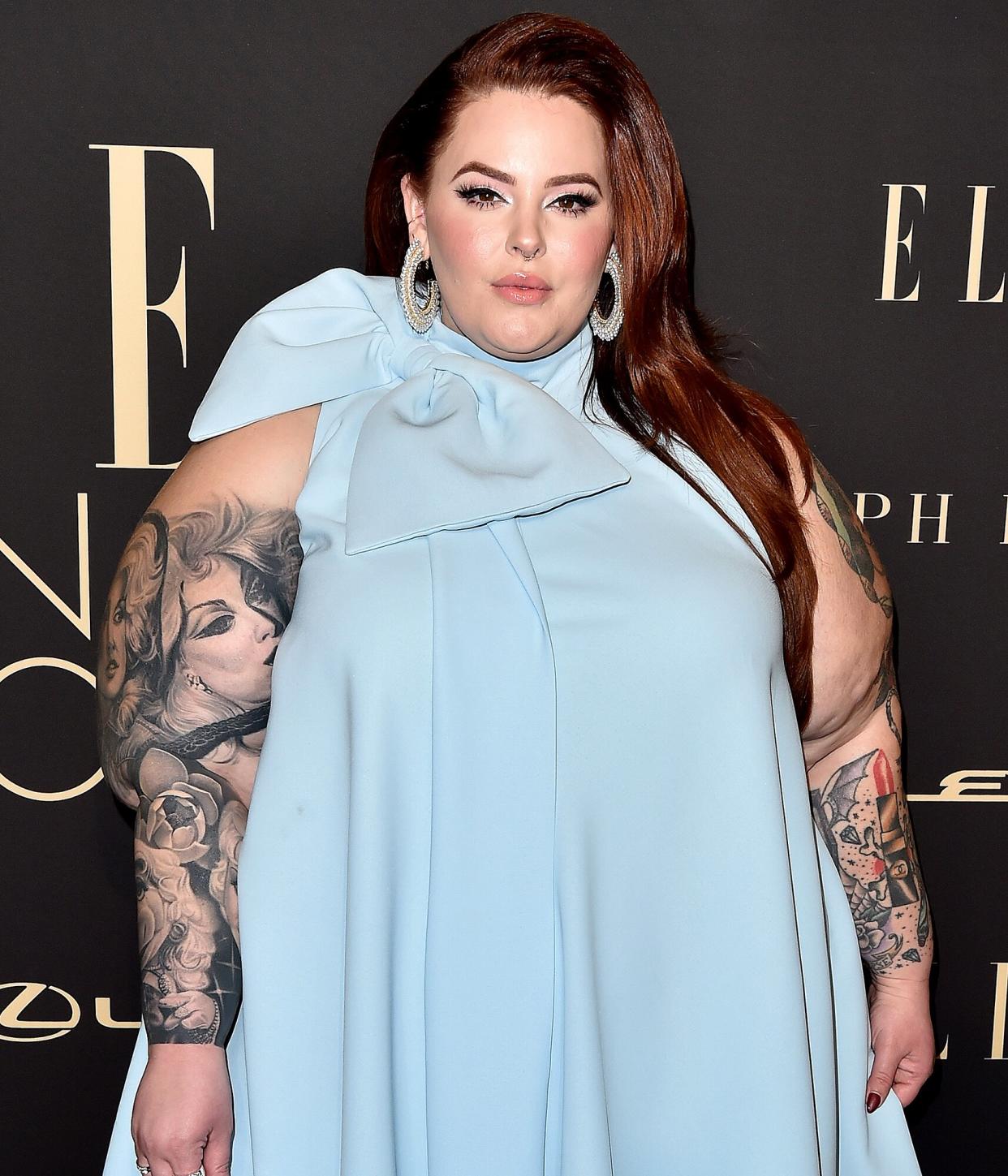Eating Disorder Expert Says Anorexia Can Affect All Body Sizes: It ‘Doesn’t Have One Look’

Axelle/Bauer-Griffin/FilmMagic Tess Holliday
When people imagine someone with anorexia, the stereotype is "young, white, thin, affluent girls," says Chelsea Kronengold, Associate Director of Communications at the National Eating Disorders Association. But the reality is that "anorexia doesn't have one look."
That was the realization for many when model Tess Holliday shared that she is "anorexic and in recovery." Holliday, 35, one of the first models over a size 20 to be signed to a major agency, defies the long-held stereotype of what an anorexic person looks like, but fits the diagnosis.
People with anorexia experience "weight loss or difficulties maintaining a 'appropriate' body weight for an individual and their medical history," Kronengold tells PEOPLE. "It involves restricting foods or calories, and it can affect people across all demographics, so it can affect people of all ages, races, genders, sexualities, socioeconomic status, abilities and even body weight and size."
RELATED: Tess Holliday Shares She's 'Anorexic and in Recovery': 'I'm Not Ashamed to Say It Out Loud Anymore'
Though the DSM, or Diagnostic and Statistical Manual of Mental Disorders qualifies anorexia as people who are underweight, "we know that there are plenty of people that struggle with anorexia that meet all criteria of anorexia except this weight component," she explains. "But the behaviors they're engaging in and the psychological and the medical ramifications of their eating disorder are the same."
People who are not underweight are instead diagnosed with what is called "atypical anorexia," though the term "tends to be problematic," says Kronengold.
"The word 'atypical' in front of anorexia makes it different, and makes those people 'other,' " she says. "The fact is that it stigmatizes people who experienced this eating disorder without the weight piece, and so many people in higher weight bodies are often underdiagnosed or misdiagnosed. And that's due to the weight stigma and misconceptions about who can have an eating disorder."
That mental component is what eating disorders are truly about, says Kronengold.
"Eating disorders aren't about weight. And quite frankly, they're not even necessarily about food," she says. "They are mental illnesses that are biological, psychological, and social in the way that they develop. And so food is really that mechanism that someone is using to either restrict or binge as a form of control and to cope with emotions, including trauma."
On Tuesday, Holliday shared to her Instagram story the quote that "atypical anorexia is anorexia."
And because eating disorders cannot be determined by how someone looks, it's important to pay attention to a person's behaviors if you suspect they may be struggling.
RELATED VIDEO: Lisa Rinna & Harry Hamlin's Model Daughter Amelia Gray Opens Up About Her Struggles with Anorexia
"The behaviors of somebody with anorexia versus somebody with atypical anorexia are going to look the same," Kronengold says. "So if they're skipping meals, if they're restricting food or eating lower calories than what would be sufficient enough for an adult to maintain. And then medically, as somebody starves their body, they're also starving their brain. You're going to start to notice neurological complications as well as cardiovascular complications and a whole slew of medical complications."
RELATED: 30 Stars Who Battled Eating Disorders — and Came Out Stronger
Concerned friends or family can reach out to NEDA's helpline for support, resources and treatment options, as can people who suspect they may have an eating disorder themselves.
"A lot of people who don't fit the stereotype of what an eating disorder looks like might be hesitant to reach out for help, or might think that they're not sick enough, and that's not the case. If you think you're sick enough, chances are you're sick enough, and the earlier that you seek out help and early intervention has a better chance at long-term sustained recovery," Kronengold says.
If you or someone you know is battling an eating disorder, please contact the National Eating Disorders Association (NEDA) at 1-800-931-2237 or go to NationalEatingDisorders.org.

